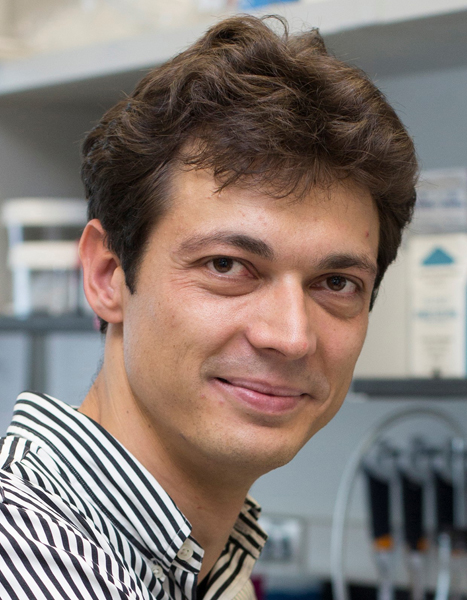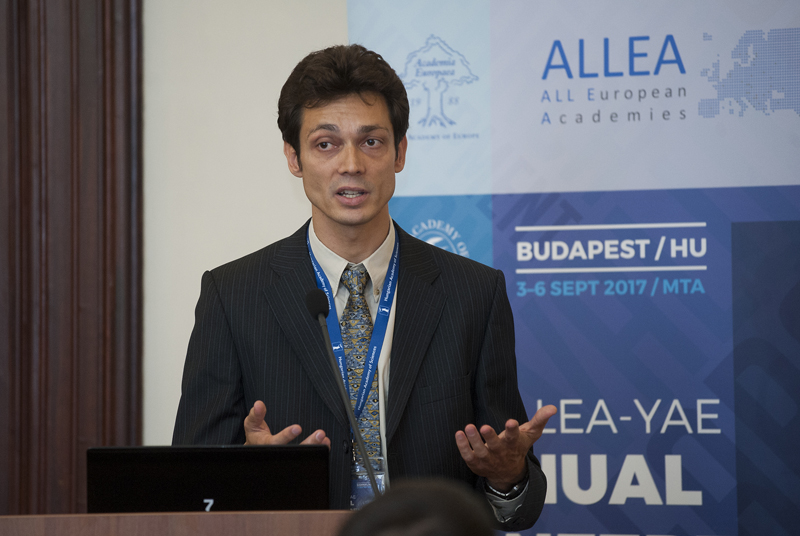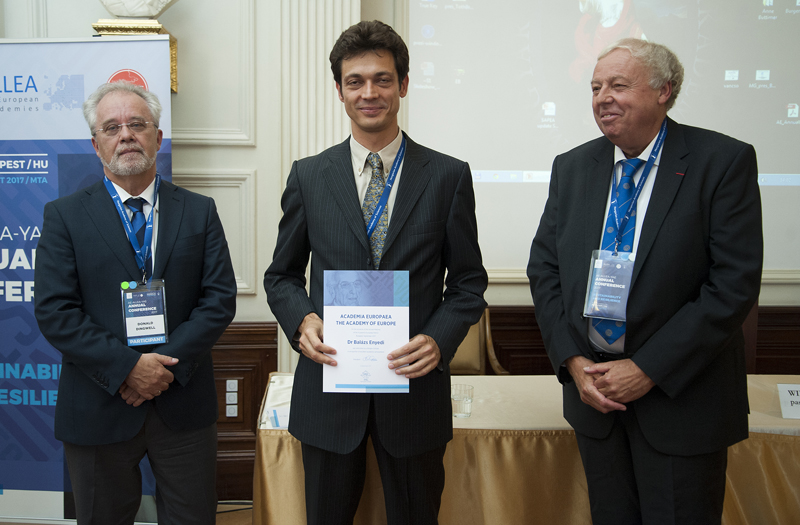Balázs Enyedi, M.D., Ph.D.#
AFFILIATION: Department of Physiology, Semmelweis University
FIELD OF SCHOLARSHIP: Cell Biology and Physiology
BIOGRAPHICAL NOTE:
Balázs Enyedi obtained his medical degree with honours from the Semmelweis University, Budapest in 2006. He joined the laboratory of Miklós Geiszt as a graduate student to study the intracellular role of hydrogen peroxide. After completing his PhD thesis in 2011 he was invited as a postdoctoral fellow to Memorial Sloan Kettering Cancer Center (New York) to the laboratory of Philipp Niethammer, where he was funded by the Lucille Castori fellowship. His research interest shifted towards understanding the mechanisms of tissue damage induced inflammation. His discoveries here earned him publications in prominent journals such as Nature Cell Biology and Cell.
Balázs has published close to 20 research and review papers and has been invited to several prestigious Gordon and Keystone conferences as a speaker. He was the recipient of the Junior Príma Prize from the Prima Foundation in Hungary and the Premium Post Doctorate Scholarship of the Hungarian Academy of Sciences. He holds a Starting Grant from the Semmelweis University where he was recently appointed as an Assistant Professor to establish his laboratory in the Department of Physiology.
DETAILS OF RESEARCH:
As a PhD student Balázs focused on understanding the intracellular role and production of reactive oxygen species, mainly hydrogen peroxide (H2O2). He was the first to map the level of H2O2 in different subcellular compartments and developed highly sensitive and specific genetically encoded H2O2 biosensors (Enyedi et al. ARS, 2010 and 2013).
As a postdoctoral fellow Balázs became interested in understanding how epithelial wounding triggers inflammation. Using the zebrafish as a model system he unravelled that injury-induced cell swelling is a central mediator of epithelial wound closure and leukocyte recruitment (Enyedi et al. NCB, 2013). Continuing with this work he showed that nuclear swelling and membrane stretch serves as a sensor and trigger for inflammatory signaling (Enyedi et al. Cell, 2016).
Balázs is currently establishing his research group in the Department of Physiology to continue his work on nuclear mechanobiology and tissue damage detection.
THREE KEY PUBLICATION REFERENCES:
Enyedi B, Jelcic M, Niethammer P.: “The cell nucleus serves as a mechanotransducer of tissue damage- induced inflammation.” Cell. 2016 May 19;165(5):1160-70
Enyedi B, Niethammer P.: “Mechanisms of epithelial wound detection.” Trends Cell Biol. 2015 Jul;25(7):398-407.
Enyedi B, Kala S, Nikolich-Zugich T, Niethammer P.: Tissue damage detection by osmotic surveillance. Nat Cell Biol. 2013 Sep;15(9):1123–1130.




